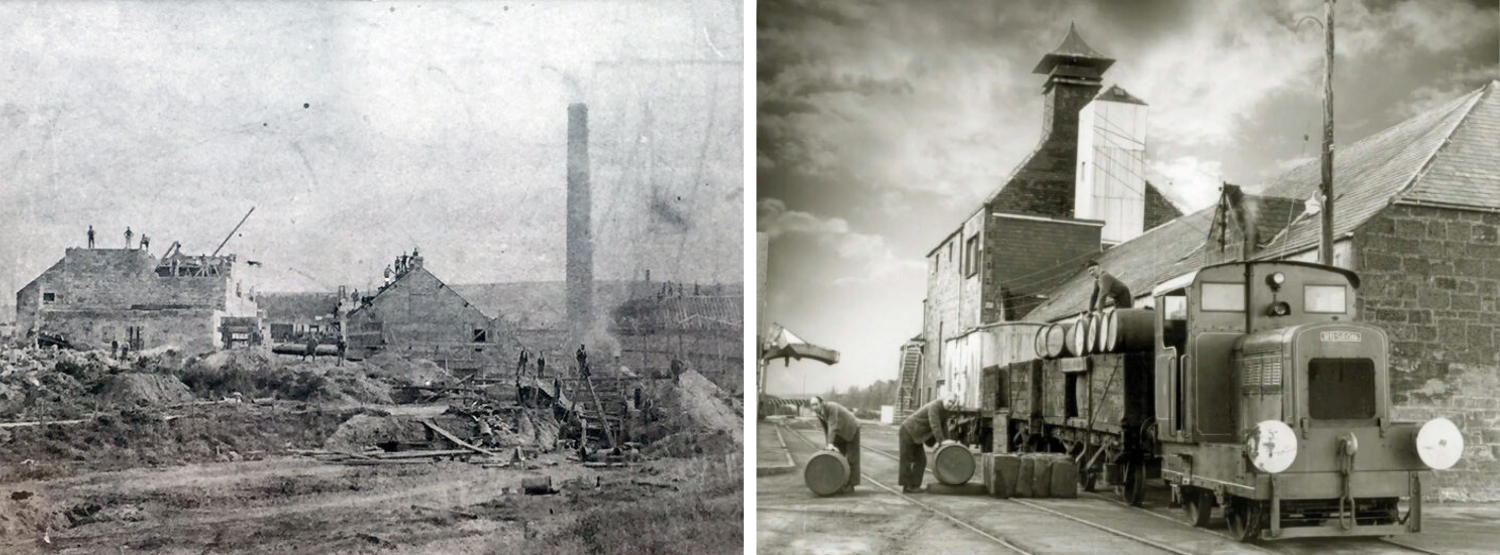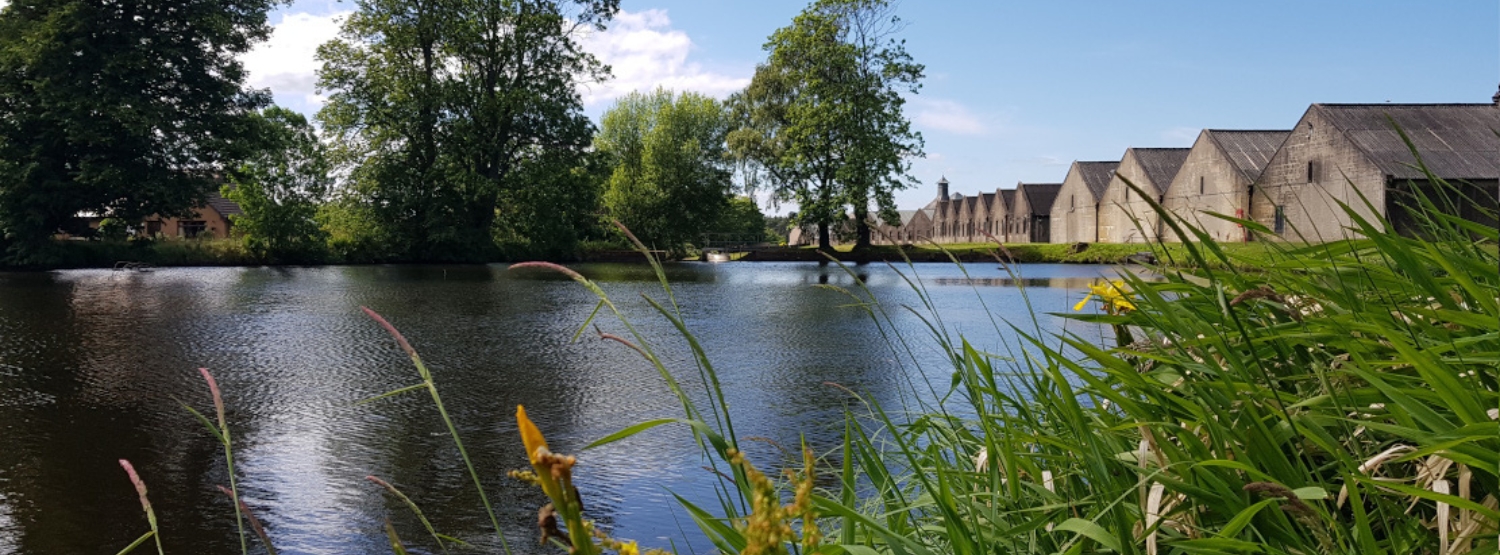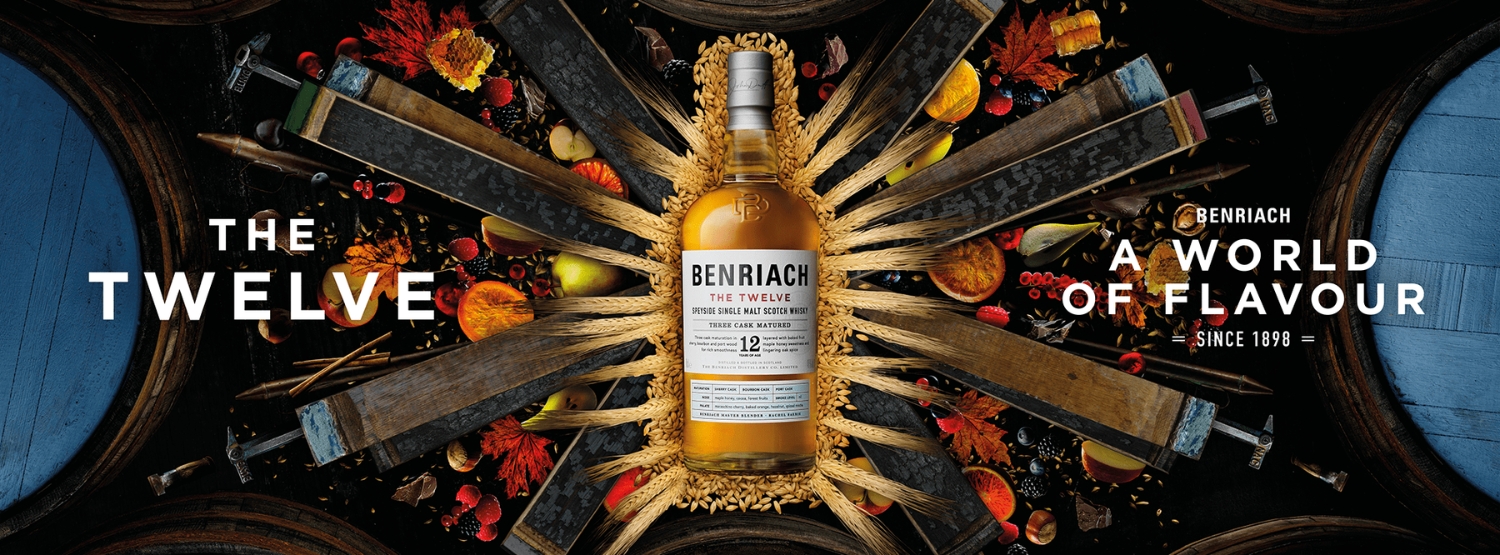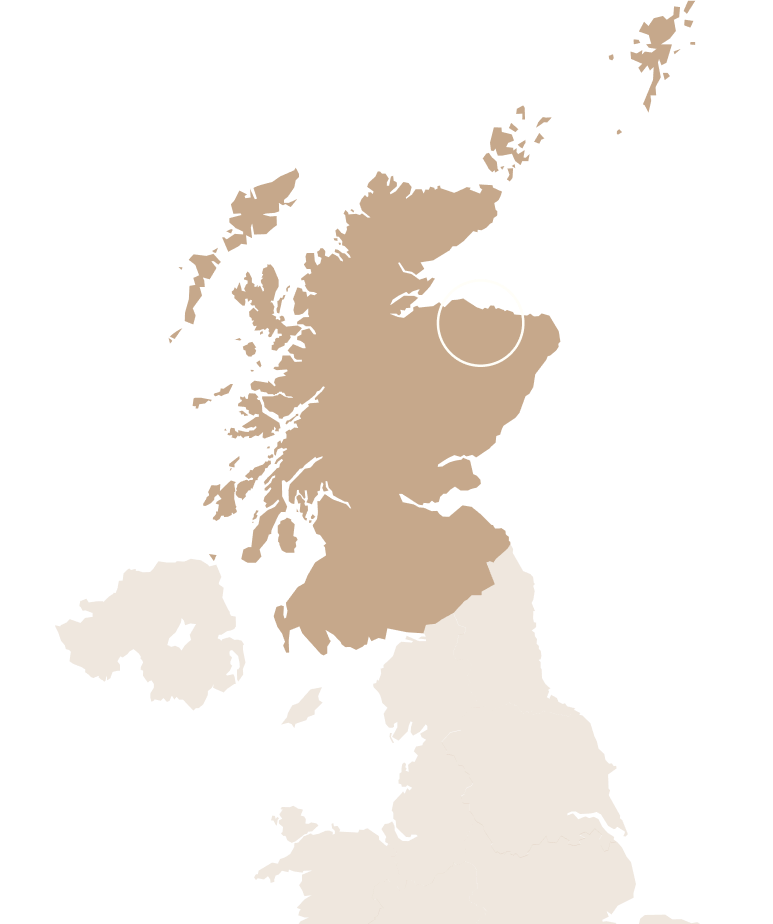A bit of history
Benriach was founded in 1897 by John Duff, but its lifespan was short-lived. Just three years in fact – it would close in 1900 as Scotch whisky prices tumbled. It was built during the late-Victorian boom, which saw several new distilleries pop up in the Speyside region. Duff already owned the Longmorn distillery and built Benriach nearby.
The original plan was to build next to Longmorn but a dispute with a local farmer made this impossible. Therefore, Duff built it on the other side of the disputed field and joined the two with a miniature railway track. This would prove crucial to Benriach’s survival as a distillery. Upon its early closure, Benriach’s traditional floor maltings were kept in operation and supplied Longmorn for decades, transported by the railway between them. This maintained Benriach’s presence when many other distilleries were demolished.

Benriach reopened as a distillery in 1965 and under new ownership – the Glenlivet Distillers Ltd. who also owned Longmorn by that time. They would evolve to become part of the modern-day Chivas Brothers, the Scotch whisky arm of drinks giant Pernod Ricard. In 1972 they took the decision to start producing peated whisky for a short period each year at two of their distilleries – Benriach and Caperdonich. This meant they would not have to purchase peated whisky for blending from competitors.
Single malt supply

This decision means that Benriach has the longest consistent supply of peated single malt production of any distillery in Speyside. It has been produced every year by subsequent owners since the early-1970s. The floor maltings, which had been the distillery’s lifeline during its six-decade closure, were finally decommissioned in 1998. They were to reopen for a short ‘malting season’ each year between 2013 and 2023. The current owners are Brown-Forman, who took control in 2016.
As with many distilleries in Speyside and across Scotland, the single malt produced at Benriach was largely used within blends. This changed with new ownership in 2004, which saw the potential market for its single malts. The distillery slowly shifted from fulfilling blending contracts and the first consistent ranges of Benriach whiskies were released. The current core domestic range features a mix of classic and peated single malts at various age statements. The small travel retail range also includes both styles, plus a triple distilled expression.
The geeky bit
The capacity of Benriach is 1.8 million litres per year, which is on the smaller end of the scale in Speyside. The distillery has a 5.8-ton cast iron mash tun – unusually they add four waters at increasing temperatures to extract the soluble sugars from the malt. Most only do this three times. There are eight stainless steel washbacks with two fermentation times – one at 55 hours and one at 100 hours. The resulting spirits of each are combined after distillation to give consistency.
There are two pairs of onion-shaped stills, which produce a classic fruity Speyside style of new make spirit. Three styles of whisky are made at Benriach. The classic Speyside forms the majority but peated spirit is made for roughly one month (and 120,000 litres) each year. This usually takes place prior to the summer break – this allows for the entire system to be thoroughly cleaned during the following maintenance period – with the spirit peated to a level of 35ppm (Phenol Parts per Million).
Triple distilled spirit is also produced for a short period annually – this started in the mid-2000s and accounts for around one week and 40,000 litres per year. Triple distillation is highly unusual in Scotland and more often associated with Irish whiskey. Just a handful of distilleries do this for a short period each year – Glasgow and Springbank are two examples – with Auchentoshan the only one to have 100% triple distilled spirit production.
One to buy | Benriach The Twelve

This exquisite single malt is one of the cornerstones of the revamped core domestic range that was launched in late-2020. The whisky features a wonderful marriage of three cask types – ex-bourbon, ex-sherry and ex-Port wine. The result is a mix of honey, vanilla and brown sugar with milk chocolate, baked apple and sultanas. Hints of tropical fruit, hazelnut and eucalyptus add further intrigue and depth. A delicious Speyside malt. The Smoky Twelve is also available if you prefer a little soft, sweet peat.
To find out how to invest in your own cask of Benriach whisky, get in touch with one of the Whisky 1901 team.
**Disclaimer**
Whisky cask investments are unregulated in the UK. The value of investments is variable and can go down as well as up. You have 14 days to change your mind and request a full refund under our cooling-off period. The volume of spirit will decrease over time (known as “the Angels’ share”). “New Make” spirit has to be matured for 3 years, during which time its alcoholic strength could be reduced. However, for the product to be classed as “whisky”, it must retain a minimum strength of 40%. Fees apply, see terms and conditions for details and terms around exiting your investment.
An investor may get back less than the amount invested. Information on past performance, where given, is not necessarily a guide to future performance. The capital invested can fluctuate and the price of casks can go down as well as up and is not guaranteed. The investments and services offered by us may not be suitable for all investors. If you have any doubts as to the merits of an investment, you should seek advice from an independent financial advisor. The Whisky 1901 Ltd sale price includes a discretionary markup to cover the cost of services provided, including but not limited to, storage, movement and maintenance of casks, insurance, front and back-office software.








